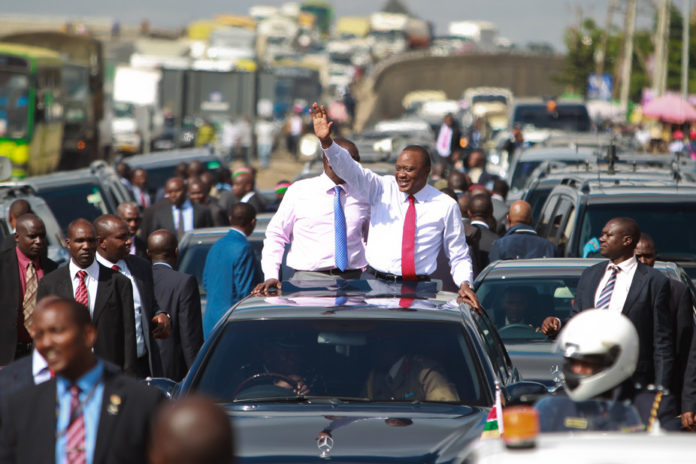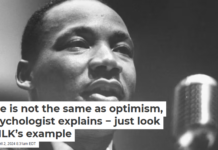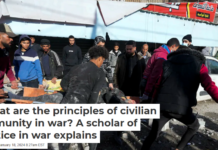
By Mattia Cacciatori, University of Bath
Kenya’s president Uhuru Kenyatta has become the first-ever sitting president to appear before the International Criminal Court (ICC). He faces charges of direct involvement in the violence that followed the elections of 2007-08, when more than 1,000 people were killed and more than 500,000 were displaced.
One would probably expect that a presidential candidate indicted on charges this serious should expect a fatal decrease in popular support. Yet when Kenyatta was elected president of Kenya in March 2013, many read it as a sign that the ICC’s intervention may have actually helped him win, or at least to consolidate his position.
Undoubtedly, Kenyatta deftly deployed populist rhetoric to discredit the Court’s operations and win over the Kenyan electorate. The two main arguments he and his supporters used were familiar ones: that the ICC is racist, and that it is over-politicised.
The African problem
The Court undeniably has an African problem: all the investigations opened within the courts of the ICC in The Hague concern African countries.
Kenyatta was able to exploit this awkward fact by recalling Kenya’s colonial past, which is still a vivid memory for many Kenyans. Claiming that the Western powers that ruled the country during colonialism were now using the ICC to establish new forms of imperialism in the country, he was able to spin the charges into a powerful populist narrative.

Heinrich-Böll-Stiftung/Global Panorama, CC BY-SA
If Kenyatta’s claims were isolated, they could be easily dismissed as evasiveness. But many other African leaders have long expressed concern about the Court’s attitude, using similar populist arguments and depicting the Court as “neo-imperialist” and even downright racist.
For its part, the African Union (AU) has openly fought against the ICC, asking its members not to comply with the ICC’s requests for the arrest of Sudanese leader Omar al-Bashir and trying to defer the Kenyatta case. It has not escaped criticism for this; many have decried the AU’s attitude towards the Court as hypocritical, and have accused it of promoted impunity.
And the ICC’s relations with the African continent are complicated in other ways. Many African nations (such as Ethiopia) have never ratified the Rome Statute, the founding treaty of the ICC drafted in 1998, but dozens of African countries have chosen to ratify the Rome Statute, granting the Court the legitimacy needed to open investigations, while many Asian and Arab states have been more reluctant to do so.
In the cases of Sudan and Libya, referrals from the UN Security Council helped shore up the court’s legitimacy. But whenever the Security Council is involved, of course, the politics of the five permanent powers dictate what is possible.
China and Russia have a veto power over the Security Council’s actions, and they are unlikely to allow cases against their allies in North Korea or Syria – meaning many obvious non-African candidates for legal proceedings are effectively insulated.
Ultimately, the ICC’s “obsession” with Africa has to be understood as a factor of both the Court’s limited legitimacy and its dependence on the politics of the UN, rather than base racism.
Regime change
Kenyatta started his attacks on the Court by highlighting the fact that the investigation bypassed former president Mwai Kibaki and his 2007 opposition challenger Raila Odinga. Many have questioned whether the ICC is just a political tool used to install and support pro-Western governments, especially after the indictments of Muhammar Gaddafi and Omar al-Bashir.
The Court has undeniably participated in processes that could be called “regime change”, especially in cases of regimes dominated by charismatic or exceptionally powerful individuals. But preventing those indicted of the most heinous crimes from maintaining positions of power is surely the whole point of international justice.
The power of the indicted surely has to be marginalised, at least until they are cleared of all charges. That standard is not an exceptional one: the Court removes potential criminals of heinous crimes from power just as the Congress of the United States removes those it impeaches from the US government.
For these reasons, the indictment of Kenyatta and the subsequent efforts to remove him from power have to be understood as standard facts of legal prudence, not just a brazen attempt to install an alternative government.
Getting the word out
The ICC’s actual capabilities are greatly misunderstood, and the Court’s actions are not a result of racist or politicised strategies; they are a consequence of the its limited potential to play an active role in the international community. Indeed, that Kenyatta was able to exploit these two arguments against the ICC illustrates the Court’s real problem: the lack of an effective communication strategy.
Today, the Court is perceived as distant, alien, and even inimical to local life, and statements and clarifications from the courtrooms of the Court in The Hague just don’t reach the populations of the countries in which the ICC is operating. In the Kenyan situation, this has allowed an accused leader to construct an anti-ICC, and in turn anti-West, narrative that has galvanised nationalistic groups to get behind him.
The danger is that the Court will treat this as an isolated case. In fact, given the current constitution of the Court, and the structural factors all but restricting its remit to African states, there is no reason why such a situation shouldn’t re-emerge in future investigations. And that augurs badly indeed for the whole idea of international justice.
![]()
Mattia Cacciatori does not work for, consult to, own shares in or receive funding from any company or organisation that would benefit from this article, and has no relevant affiliations.
This article was originally published on The Conversation.
Read the original article.




















